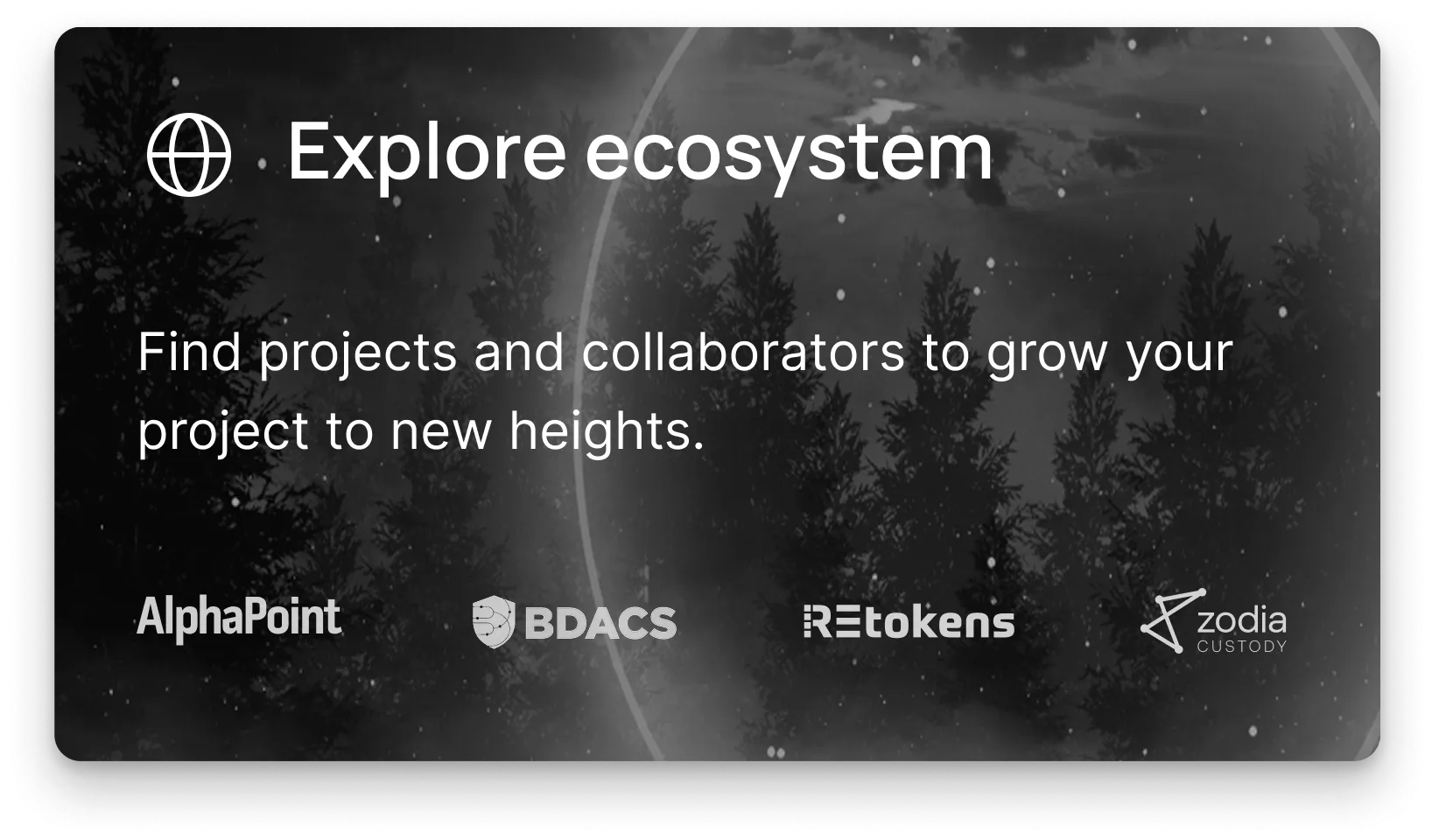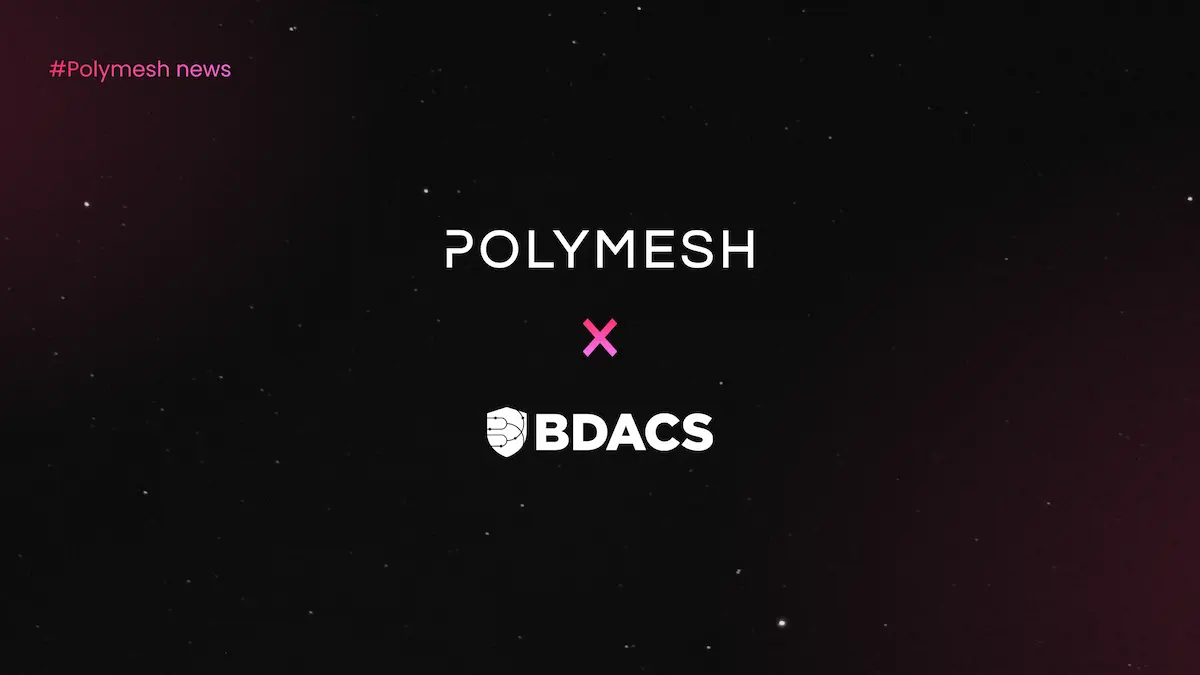Decentralization through Polymesh node operators
Polymesh recently welcomed Fortuna as the latest node operator contributing to the network’s security and decentralization.
As a decentralized blockchain, Polymesh relies on permissioned third party node operators to keep the chain secure and operational. These node operators must be known, licensed entities.
In this blog post, we’ll explore the critical role that node operators play in Polymesh’s operations, the importance of decentralization for blockchain security, the benefits of running a node on Polymesh, and how interested entities can get involved.
The role of node operators in the Polymesh ecosystem
Node operators are the backbone of Polymesh, which uses the proof of stake consensus mechanism. Specialized permissions enable these entities to run operator nodes and perform three primary roles:
1. Gathering transactions into blocks
Node operators collect and organize transactions into blocks to propose for inclusion in the blockchain, contributing to the orderly and accurate recording of transaction history.
2. Securing the chain
Staking POLYX, Polymesh’s native utility token, and the incentive structure of staking rewards node operator interests with maintaining the network’s integrity and availability, contributing to overall security.
3. Voting on blocks
Node operators vote on blocks proposed by other node operators to ensure adherence to the blockchain’s protocol rules, helping to maintain a trustworthy and operational network.
For financial institutions, the identity of node operators matters, so Polymesh node operators can only be licensed financial entities. This brings a layer of trust and reliability to the network by ensuring only known, reputable entities may participate in the technology operations underpinning transactions.
Why is decentralization important for blockchain security?
Decentralization and public blockchains go hand in hand. Decentralization plays a crucial role in network security by distributing control among numerous nodes rather than a single central authority. No single entity can alter the blockchain data without consensus.
Distributed nodes make it significantly harder for malicious actors to compromise the network. For example, Bitcoin’s security largely stems from its highly decentralized structure, where thousands of nodes validate transactions according to proof of work.
On Polymesh, which employs proof of stake, only a limited number of nodes may participate in gathering transactions into blocks to gain rewards per era. Having a higher number of node operators increases the competition between operator nodes for the selected pool, ultimately helping to incentivize more nodes to behave reliably.
This decentralization ensures transparency and builds trust among participants, knowing that the system – and its data – is not being controlled or manipulated by a central entity with potentially conflicting interests.
From a technical perspective, decentralization also improves fault tolerance as the network is more resilient to failures. The blockchain can function even if some of the nodes go offline, as other nodes will be able to take over operations.
Polymesh’s hybrid approach, where decentralization is achieved through distributed operator nodes run by licensed financial entities, brings additional security and compliance benefits. Node operators are better incentivized by introducing reputation risk for harmful behavior, while participants are aided in compliance as the identity of node operators is publicly known and comparable to sanction lists.
The benefits of running a node on Polymesh
When you use Polymesh user interfaces such as the Polymesh Portal, you’re connecting to regular (i.e. non-operator) nodes. A regular node broadcasts the blockchain network, reads its data, and submits transactions to the chain. If interacting with Polymesh is critical to your business, you might want to consider running a regular node instead of relying on a public node.
For eligible entities who possess a financial license, running an operator node offers even greater benefits.
As with running a regular node, running an operator node reduces your dependency on public nodes, optimizing your infrastructure and performance while mitigating risk of interception. However, running an operator node on Polymesh also enables you to earn rewards in the form of POLYX, which can help offset costs associated with integration and deployment. These incentives come from two main sources:
- Block authoring fees: Node operators receive a portion of the fees for authoring new blocks
- Staking rewards: Additional rewards are paid to node operators from newly minted tokens as the sum of their commission (capped at 10%) of staking rewards and stake based rewards.
Lastly, running an operator node is a way to contribute to the overall health and integrity of Polymesh, as well as secure and stabilize the ecosystem for all participants. Node operators are responsible for maintaining high uptime and operational efficiency, which is critical for the continuous functioning of the blockchain.
How can you become a node operator on Polymesh?
Polymesh’s public permissioned infrastructure ensures that only reputable and licensed entities may become node operators. At a high level, the process to become a node operator looks something like this:
1. Meet the criteria
Ensure that you are a licensed financial entity (i.e. a custodian, broker dealer, transfer agent, etc.). Polymesh requires node operators to pass a verification process to maintain network integrity, which involves proving your status as a licensed financial entity.
2. Complete Know Your Business (KYB)
Contact the team to express your interest in becoming a node operator. You’ll need to complete a Know Your Business (KYB) application, which includes verifying information about your business and its directors. This data will be compared against various sanctions lists as per global standards.
3. Set up your node in your local environment
Once approved, you can set up your operator node. The Polymesh Association provides detailed guidelines and support for this process. You can opt to work with node providers like RadiumBlock, which offer node-as-a-service solutions to simplify setup and maintenance, or you can rely on your own infrastructure.
4. Stake POLYX
To increase your chances of making it into the pool of selected node operators and earn rewards, you’ll need to stake POLYX tokens. The pool of selected node operators changes each era (every 24 hours).
5. Participate in the network
As a node operator, even if you’re not selected into the block-writing pool in a given era, you’ll still actively participate in maintaining the blockchain network. For instance, in addition to gathering blocks, node operators also vote on blocks proposed by others.
Conclusion
Node operators are essential to Polymesh’s security, stability, and integrity. By requiring distributed operator nodes to be run by licensed financial entities, Polymesh ensures robust security suitable for regulated assets.
Becoming a node operator provides enthusiastic companies with the chance to contribute to the evolution of tokenization and shape the future narrative of finance. Whether you’re motivated by the prospect of rewards, the desire to join a community of innovators, or the opportunity to guide industry development, the Polymesh ecosystem is ready for you to explore.
To learn more about becoming a node operator, visit polymesh.network/node-operators.
From advisory to reporting, our ecosystem has the collaborators and partners you need to grow your project on Polymesh to new heights.


.svg)











































